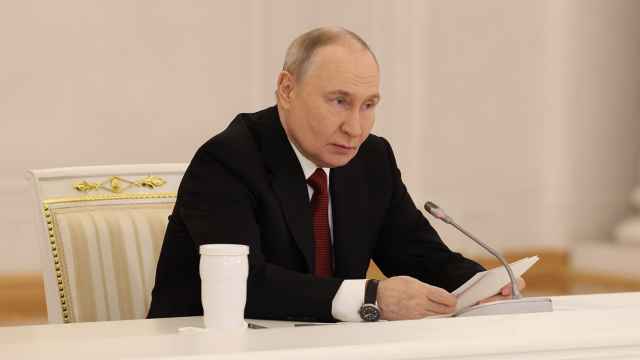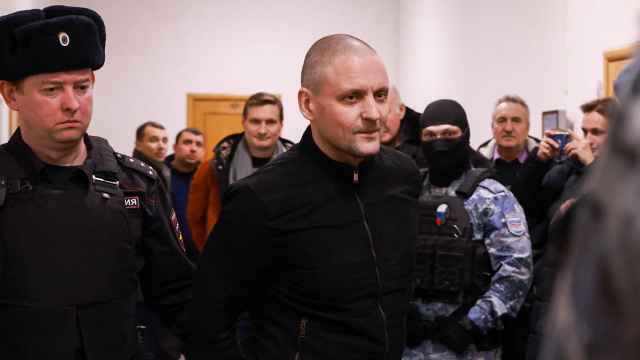The United States Agency for International Development, or USAID, signed a $50 million deal with global technology giant Cisco Systems on Thursday in the biggest partnership the organization's Russian arm has ever concluded.
The agreement will see Cisco Systems make a direct financial contribution of $30 million to $40 million as well as making available staff and in-house services for technology related services, training centers and other projects across Russia in order to increase technical skills and grow the high-tech share of the country's gross domestic product. USAID will commit $9 million.
Leveraging its own financial contributions and development expertise to extract big commitments from corporations is a format of partnership that has been employed more and more frequently by USAID as it seeks ways to maintain its effectiveness against a backdrop of severe budget cuts in Washington.
In Russia, for an outlay of $27 million, USAID has obtained $144 million in contributions through about 40 long-term partnerships set up since 2003.
"We've been leading the way for the agency," Charles North, head of USAID in Russia, told The Moscow Times on the sidelines of a conference held at Spaso House, the U.S. ambassador's residence.
"But globally this is something we're emphasizing — working together, leveraging other base forces and expertise; it's everything from working with energy companies to working with Sesame Street."
Partnerships like these also help USAID utilize the expertise of the companies with whom they collaborate and make links between government, business and noncommercial organizations.
Focusing on projects supporting health care, civil society, rule of law, local governance and conflict mitigation, USAID has spent $2.6 billion on Russian development since it began working in the country in 1992. Its 2010 budget was $64 million.
Direct contributions to nongovernmental organizations in Russia make up only 52 percent of USAID's local budget.
Although all the details of how the $50 million from the partnership with Cisco Systems will be spent have not been finalized, initial allocations will go on training centers Cisco Systems has established in the North Caucasus and networking academies already functioning across Russia.
North said USAID was close to awarding grants to institutions working on information technology that would also benefit from the Cisco Systems tie-up.
"We're now beginning to work out a detailed action plan about how we build this out," he said.
For Cisco, the investment is important in helping to stimulate the high-technology sector. Mikhail Pakhomov, director of government affairs at Cisco Systems in Russia, said the high-technology industry occupied 1 percent to 2 percent of Russian GDP. In the U.S., the share was closer to 8 percent.
"Our direct interest is that this share increases, but we cannot increase it if there are not enough highly qualified specialists and enterprises," Pakhomov said.
Cisco Systems has also pledged to invest $1 billion in the brainchild of President Dmitry Medvedev, innovation hub Skolkovo.
Paige Alexander, assistant administrator of USAID for Europe and Eurasia, told The Moscow Times that the partnership with Cisco Systems would also push the organization's goals of open data, e-government and a bigger civil society.
It will enlarge USAID's impact, she said, by reaching "lost populations that we can't necessarily hit [through traditional approaches] but can be hit by other means."
Russia is among the top four recipients of USAID money in Europe and Asia alongside Ukraine, Georgia and Kosovo.
But belt-tightening in Washington and dramatic cuts to the U.S. foreign aid budget are forcing the agency to depend more and more on partnerships like the one with Cisco Systems.
"We have to build up partnerships because we just don't have the money anymore," Alexander said.
A Message from The Moscow Times:
Dear readers,
We are facing unprecedented challenges. Russia's Prosecutor General's Office has designated The Moscow Times as an "undesirable" organization, criminalizing our work and putting our staff at risk of prosecution. This follows our earlier unjust labeling as a "foreign agent."
These actions are direct attempts to silence independent journalism in Russia. The authorities claim our work "discredits the decisions of the Russian leadership." We see things differently: we strive to provide accurate, unbiased reporting on Russia.
We, the journalists of The Moscow Times, refuse to be silenced. But to continue our work, we need your help.
Your support, no matter how small, makes a world of difference. If you can, please support us monthly starting from just $2. It's quick to set up, and every contribution makes a significant impact.
By supporting The Moscow Times, you're defending open, independent journalism in the face of repression. Thank you for standing with us.
Remind me later.






